EXPLORE
20 Vitamins That Make The Most Impact On Your Health
Published
2 months agoon

Shutterstock
Vitamins are essential nutrients that play a critical role in maintaining your overall health and well-being. From boosting your immune system to supporting brain function and energy production, each vitamin contributes uniquely to your body’s functions. A balanced diet rich in these vital nutrients can help prevent deficiencies and promote long-term health. Whether they’re found in fresh fruits, vegetables, or supplements, vitamins ensure your body performs at its best. Let’s explore 20 vitamins that have the most significant impact on your health and why they matter.
Vitamin A

Shutterstock
Vitamin A is essential for maintaining healthy vision, a robust immune system, and proper cell growth. It plays a vital role in keeping skin and mucous membranes healthy, which helps to prevent infections. Found in foods like carrots, sweet potatoes, and spinach, this vitamin also supports reproduction and fetal development. A deficiency in Vitamin A can lead to vision problems, including night blindness.
Vitamin B1 (Thiamine)
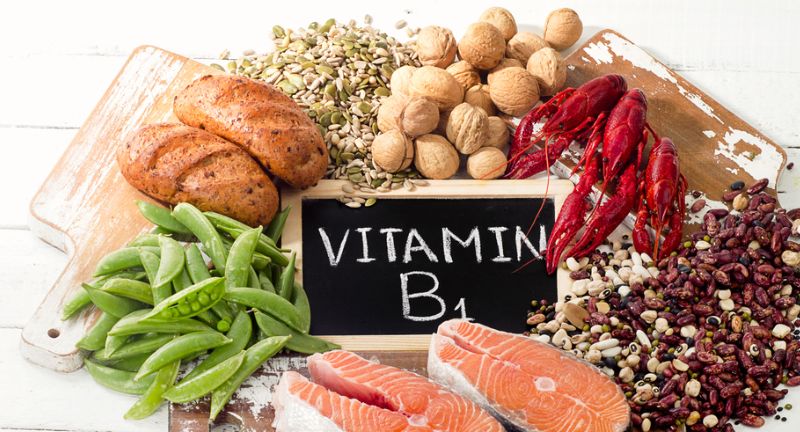
Shutterstock
Vitamin B1, also known as thiamine, helps your body convert carbohydrates into energy. It is crucial for the proper functioning of the heart, muscles, and nervous system. Found in whole grains, nuts, and pork, it’s essential for maintaining energy levels throughout the day. A deficiency can lead to fatigue, weakness, and in severe cases, neurological issues like beriberi.
Vitamin B2 (Riboflavin)
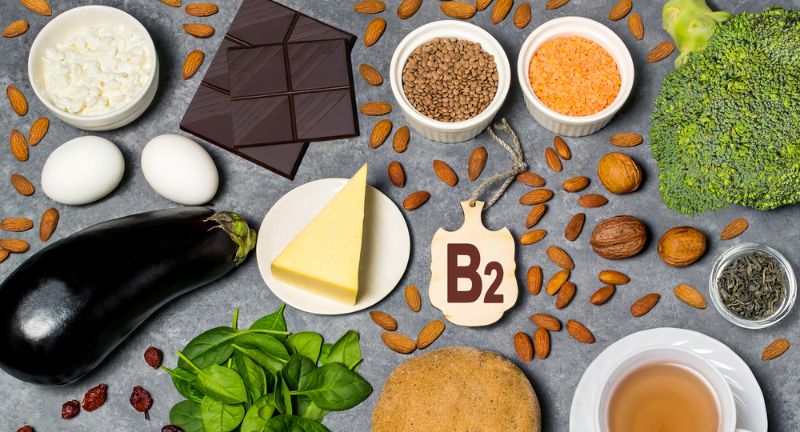
Shutterstock
Vitamin B2 is important for energy production and the metabolism of fats, drugs, and steroids. It also plays a critical role in maintaining healthy skin, eyes, and nerve function. Found in eggs, dairy products, and green vegetables, it helps the body convert food into usable energy. Deficiency in Vitamin B2 can result in skin disorders, sore throat, and cracked lips.
Vitamin B3 (Niacin)

Shutterstock
Vitamin B3, or niacin, helps improve cholesterol levels and supports brain function. It also aids in converting food into energy and maintaining healthy skin. Niacin can be found in meat, fish, and whole grains, making it easy to include in a balanced diet. Deficiency can lead to pellagra, characterized by skin rashes, digestive issues, and mental confusion.
Vitamin B5 (Pantothenic Acid)
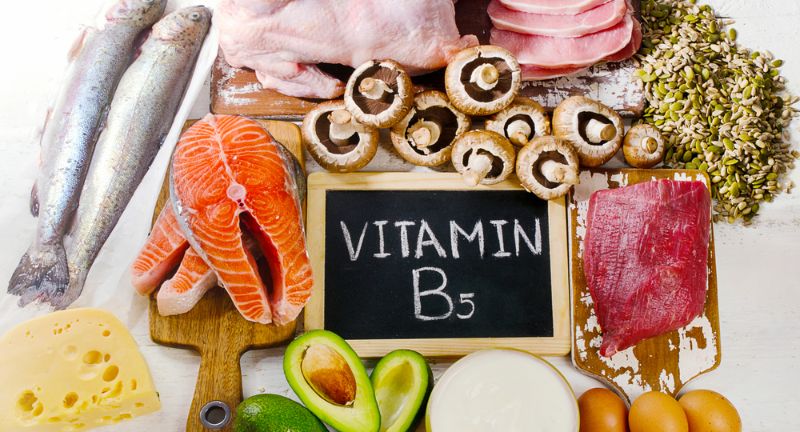
Shutterstock
Vitamin B5 is essential for synthesizing and metabolizing fats, proteins, and carbohydrates. It supports adrenal gland function and helps your body respond to stress. Found in nearly all foods, including meat, eggs, and vegetables, it’s rare to have a deficiency. However, low levels can cause fatigue, irritability, and muscle cramps.
Vitamin B6 (Pyridoxine)
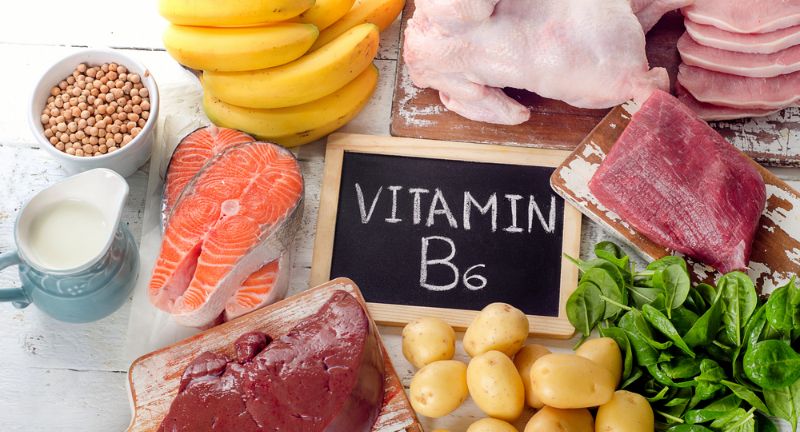
Shutterstock
Vitamin B6 plays a key role in brain development and function, as well as in the production of neurotransmitters. It’s essential for immune function and red blood cell production. Sources include poultry, fish, potatoes, and bananas. Deficiency can lead to depression, confusion, and weakened immunity.
Vitamin B7 (Biotin)
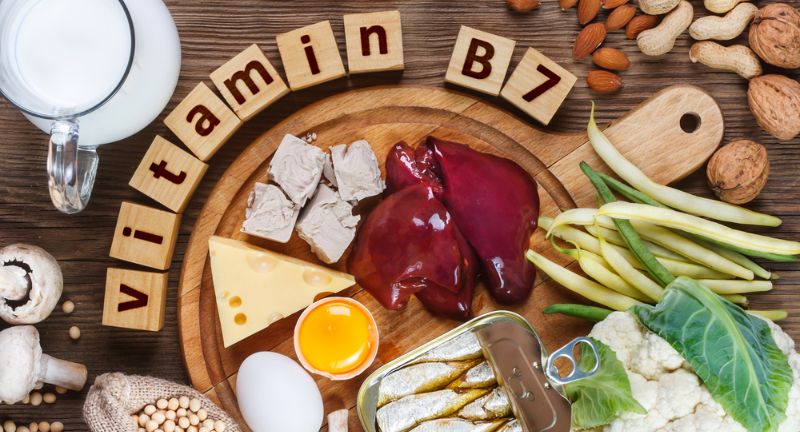
Shutterstock
Vitamin B7, commonly known as biotin, is essential for healthy hair, skin, and nails. It also supports energy production and the metabolism of carbohydrates, fats, and proteins. Found in eggs, nuts, and seeds, biotin helps maintain a youthful appearance. Deficiency is rare but can result in hair loss, skin irritation, and brittle nails.
Vitamin B9 (Folate)
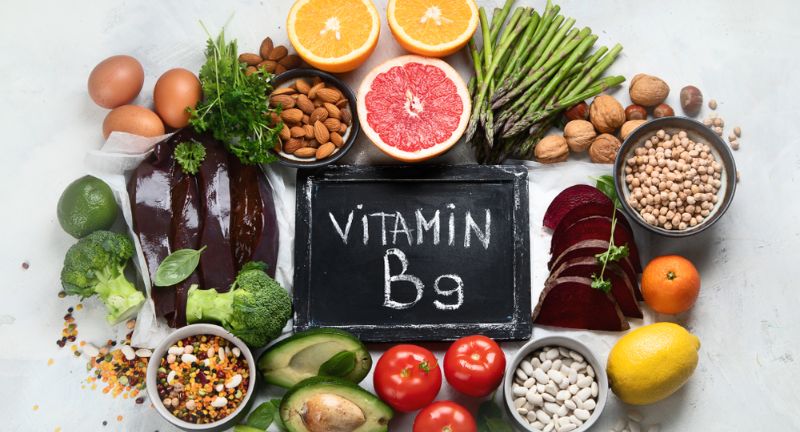
Shutterstock
Vitamin B9, also known as folate, is essential for DNA synthesis, cell division, and proper brain function. It is especially important for pregnant women, as it helps prevent birth defects in the baby’s brain and spine. Folate is naturally found in leafy greens, legumes, and citrus fruits, while folic acid is the synthetic form found in supplements. A deficiency can lead to anemia, fatigue, and developmental problems during pregnancy.
Vitamin B12 (Cobalamin)

Shutterstock
Vitamin B12 is crucial for nerve function, red blood cell production, and DNA synthesis. It is primarily found in animal products like meat, eggs, and dairy, making it a concern for vegetarians and vegans. Supplementation may be necessary for those with dietary restrictions or absorption issues. Deficiency can lead to fatigue, neurological problems, and anemia.
Vitamin C

Shutterstock
Vitamin C is a powerful antioxidant that supports immune function, wound healing, and collagen production. Found in citrus fruits, strawberries, and bell peppers, it helps protect the body from oxidative stress. Regular intake can reduce the severity of colds and improve skin health. A deficiency can lead to scurvy, characterized by fatigue, gum disease, and joint pain.
Vitamin D

Shutterstock
Vitamin D, often called the “sunshine vitamin,” is essential for calcium absorption and bone health. It also supports immune function and reduces inflammation. Found in fatty fish, fortified foods, and synthesized through sunlight exposure, it’s vital for overall health. A deficiency can lead to weakened bones, fatigue, and a higher risk of chronic illnesses.
Vitamin E

Shutterstock
Vitamin E is a fat-soluble antioxidant that protects cells from damage and supports immune function. It’s found in nuts, seeds, and vegetable oils, making it easy to incorporate into your diet. This vitamin also plays a role in maintaining healthy skin and eyes. Deficiency is rare but can lead to muscle weakness and neurological problems.
Vitamin K

Shutterstock
Vitamin K is essential for blood clotting and bone health. It helps the body produce proteins that regulate calcium in the blood and strengthen bones. Found in leafy greens, broccoli, and Brussels sprouts, it’s easy to include in a balanced diet. Deficiency can lead to excessive bleeding and weakened bones.
Choline
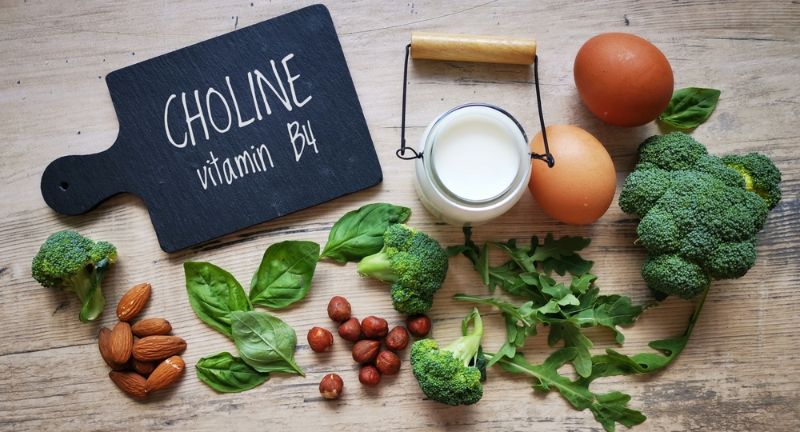
Shutterstock
Though not technically a vitamin, choline is a vital nutrient that supports liver function, brain development, and muscle movement. It plays a key role in maintaining the structure of cell membranes. Found in eggs, fish, and soy products, choline is essential for overall health. Deficiency can lead to liver damage and cognitive decline.
Vitamin H (Biotin)

Shutterstock
Vitamin H, more commonly known as biotin, supports energy metabolism and helps maintain healthy hair, skin, and nails. It also plays a role in the health of the nervous system. Biotin can be found in foods such as eggs, almonds, and whole grains. Deficiency is rare but can lead to thinning hair, skin rashes, and brittle nails.
Vitamin F (Omega Fatty Acids)
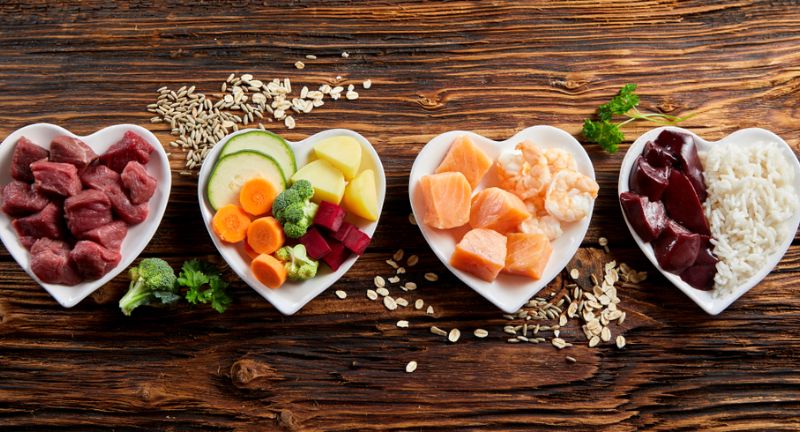
Shutterstock
Vitamin F refers to essential fatty acids like omega-3 and omega-6, which are crucial for heart health, brain function, and reducing inflammation. Found in fatty fish, walnuts, and flaxseeds, these nutrients support cell growth and skin health. Regular intake is linked to improved cardiovascular health and reduced risk of chronic diseases. A deficiency can lead to dry skin, fatigue, and heart-related issues.
Vitamin B17 (Amygdalin)
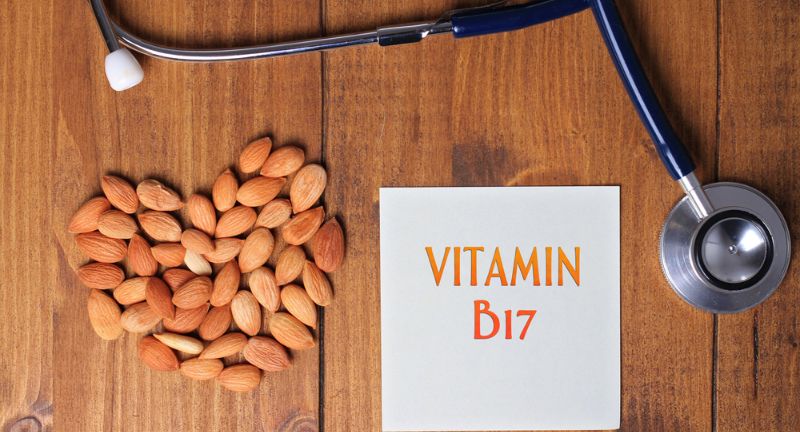
Shutterstock
Vitamin B17, or amygdalin, is often touted for its potential health benefits, including cancer prevention. It is naturally found in seeds of fruits like apricots, apples, and cherries. While controversial, proponents suggest it helps in detoxification and boosting immunity. However, excessive intake can be harmful, so it’s best consumed in moderation and with professional advice.
Vitamin P (Flavonoids)
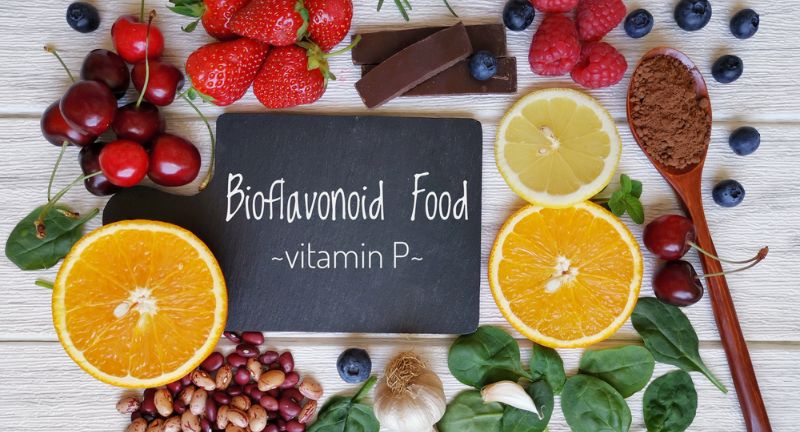
Shutterstock
Vitamin P refers to flavonoids, compounds that support cardiovascular health and act as powerful antioxidants. Found in citrus fruits, berries, and green tea, flavonoids help protect against oxidative stress and inflammation. They also improve blood circulation and support immune function. Incorporating flavonoid-rich foods into your diet promotes long-term health and vitality.
Vitamin T

Shutterstock
Vitamin T is believed to play a role in boosting blood platelet production and supporting wound healing. While not as widely studied as other vitamins, it is linked to foods like sesame seeds and egg yolks. It is also associated with promoting energy levels and healthy skin. Though rare, deficiency could impact recovery times and energy metabolism.
Vitamin K2

Shutterstock
Vitamin K2, a subtype of Vitamin K, plays a vital role in bone and cardiovascular health. It helps regulate calcium in the body, directing it to bones and teeth while preventing buildup in arteries. Found in fermented foods, egg yolks, and cheese, it complements Vitamin D for improved health outcomes. A deficiency can lead to weakened bones and increased risk of arterial calcification.
Conclusion

Shutterstock
Vitamins are the building blocks of a healthy and vibrant life, each playing a unique role in keeping your body functioning optimally. Incorporating a variety of nutrient-rich foods into your diet ensures you get the essential vitamins needed for long-term well-being. By understanding their benefits, you can make informed choices to support your health and prevent deficiencies. Whether through whole foods or supplements, prioritizing these vitamins is a simple yet powerful step toward a healthier you. Remember, small daily habits can lead to big health improvements over time.
Related Topics:

More From Lifestylogy
-


Why Grapes Are One Of The Best Fruits
-


Vintage Photos of Hollywood Icons Unlike You’ve Ever Seen Before
-


Your How To Guide To Gardening
-


27 Habits To Implement That Could Change Your Life For…
-


25 Herbs That Are Essential To Chinese Herbal Medicine That…
-


29 Foods Your Dentist Wishes You Would Stay Away From
-


20 Things People Mindlessly Spend Their Money On That Might…
-


25 Tips For Attending A Golf Tournament Like The PGA…
-


25 Ways To Incorporate More Magnesium Into Your Diet